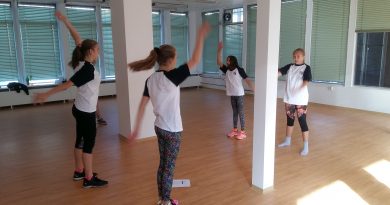Grateful Minds, Happy Hearts
As November ushers in the season of thankfulness, it’s the perfect time to reflect on the power of gratitude—not just as a warm feeling but as a transformative practice with significant psychological benefits. In the world of education, gratitude plays an essential role in shaping students’ mental well-being, academic success, and overall school culture.
Gratitude isn’t just about saying “thank you”; it’s a way of focusing on the positive aspects of life and appreciating what we have. Research shows that practicing gratitude can boost mental health, enhance relationships and improve academic performance.
Specifically, gratitude reduces stress and anxiety, improves mood, and fosters a sense of hope. It shifts the focus away from what’s lacking to what’s present, promoting a more positive mindset. Expressing gratitude strengthens social bonds, making students feel more connected to peers, teachers, and their families as well. According to experts, students who practice gratitude often show increased motivation, better focus, and a more resilient attitude toward challenges.
Simple Gratitude Exercises for Students and Families
- Encourage students to keep a journal where they write down three things they’re grateful for each day. These can range from a kind act by a friend to something as simple as a sunny day.
- Begin or end the school day with a gratitude circle. Have each student share one thing they’re thankful for.
- Encourage students to write thank-you notes to teachers, family members, or friends. This simple act of appreciation strengthens relationships.
- For younger students, consider creative activities like making “gratitude trees,” where each leaf represents something they’re thankful for.
- Families can make gratitude a part of their dinner conversations or bedtime routines, taking turns to share what they appreciated about their day.
As we move deeper into the school year, let’s remember that gratitude is more than just a seasonal theme. It’s a mindset that benefits everyone, every day. By practicing gratitude, we nurture not only happier and healthier students but also a more connected and compassionate school community.




